LGBTQ people in Uzbekistan frantically apply for asylum as they face violence and death

LGBTQ people in Uzbekistan are frantically applying for asylum in surrounding countries as they face increasing persecution.
As well as threats of violence, LGBTQ people have reported being threatened with death as deep-rooted homophobia and discrimination further grow in the country.
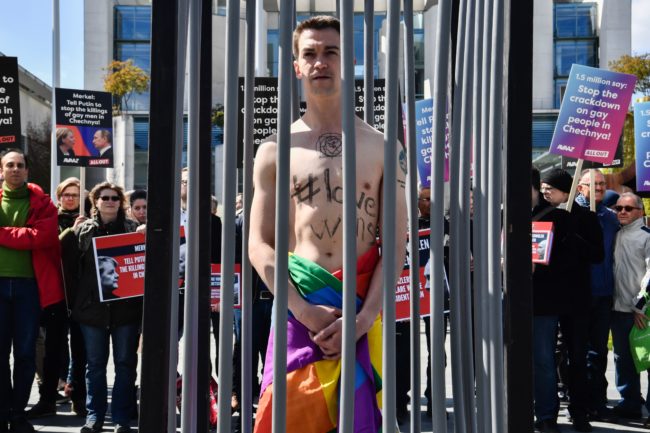
An activist stands naked, wrapped in a rainbow flag, in a mock cage in front of the Chancellery in Berlin on April 30, 2017, during a demonstration calling on Russian President to put an end to the persecution of gay men in Chechnya.
The protestors called on German Chancellor Angela Merkel, who will meet Putin in Sochi on May 2, 2017, to raise the issue with him. / AFP PHOTO / John MACDOUGALL (Photo credit should read JOHN MACDOUGALL/AFP/Getty Images)
Human rights activists in the country have reported that numerous people are being forced to apply for asylum and flee the country.
One trans woman, identified only as K, said that she was brutally beaten by Uzbek police and security forces a number of times between 2014 and 2017 after she refused to out other LGBTQ people.
Speaking to RFE/RL, she said that she was held and beaten across a number of days.
“I was beaten badly. After five or six days [of abuse] you just lie there.”
K explained that the police use violence to blackmail LGBTQ people.
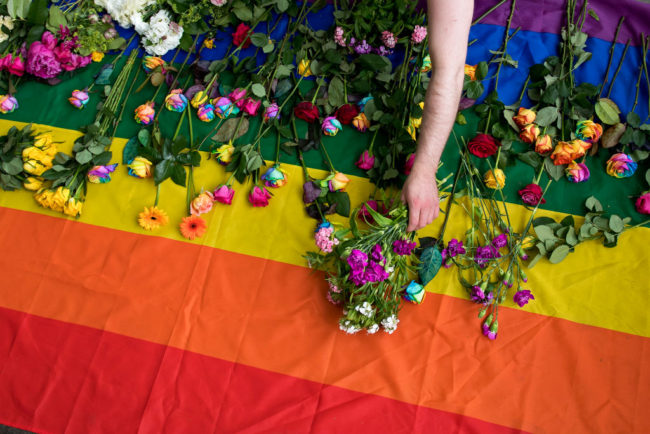
Demonstrators lay roses on a rainbow flag as they protest purge of gay men in Chechnya outside the Russian Embassy in London on June 2, 2017. (Photo by JUSTIN TALLIS/AFP/Getty Images)
The former Soviet country, which continues to have strong ties to Russia, continues to criminalise homosexuality for men – with gays facing up to three years in jail.
She added that she was finally pushed to flee after she was reportedly raped in police custody in January 2017.
However, she is essentially a “stateless” person as she was born in a territory which became disputed after the collapse of the Soviet Union.
“At that time there were no borders, and this area belongs to Tajikistan. There was a massive outflow of the population – to Russia and neighbouring countries. And those who came to Uzbekistan have yet to be granted citizenship,” she said.
However, she was granted an exit visa by Uzbek authorities and she headed to Moscow. When she reached there, her asylum request was denied on the basis that her persecution as a trans woman was not “justifiable” grounds.
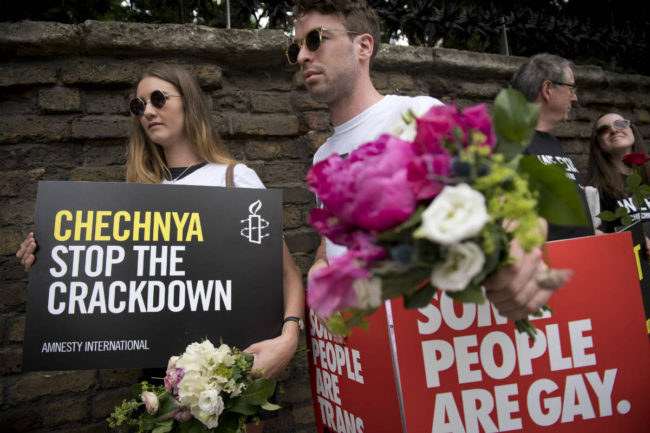
She has since found asylum in Belarus.
While the country does not have the best record for LGBTQ equality, it was one of the last options for K.
However, a report released by Amnesty International in December 2017 found that Belarus was one of a number of former Soviet Union countries that fuelled discrimination and homophobia as part of Russia’s crusade against “nontraditional sexual relations”.
Despite some progress in other areas on LGBT issues, there is little formal LGBT movement in Uzbekistan – which shares a border with Afghanistan.
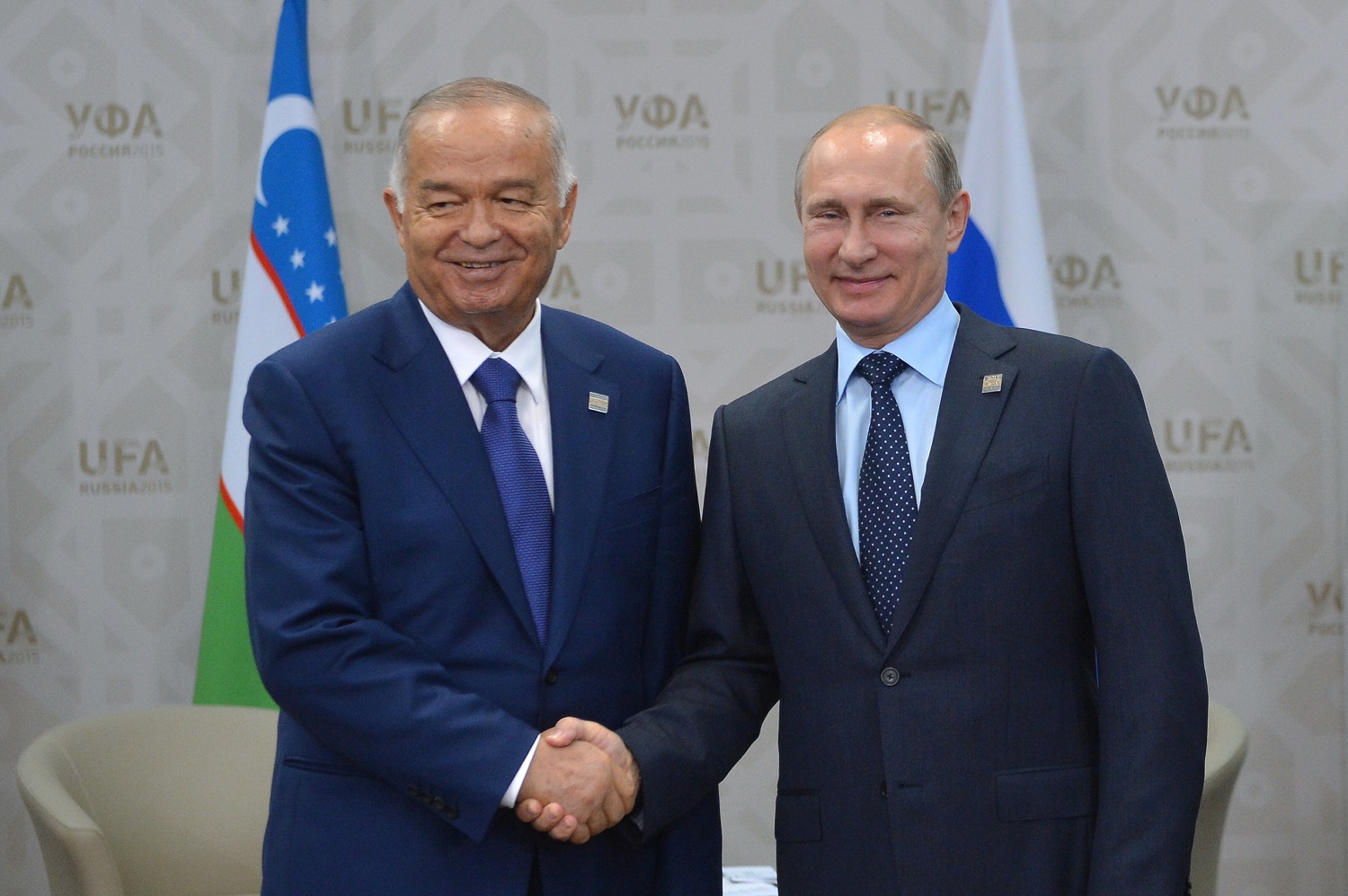
Former Uzbek President Islam Karimov and Russian President Vladimir Putin
The country’s President Islam Karimov ranted about gay people in a televised meeting in 2016 – claiming that homosexuality is a “vulgar” Western invention.
In a video translated by Radio Free Europe, he aped some of Russia’s most extreme homophobes, insisting: “We talk about so-called Western culture. We call it vulgar culture. You know what I mean.
“It’s inappropriate even to speak about this in front of women.
“When men live with men and women live with women, I think there must be something wrong up here [points at head].
“Something is broken here. There is a saying: When God wants to reveal someone’s vulgarity, he first takes his reason away.”
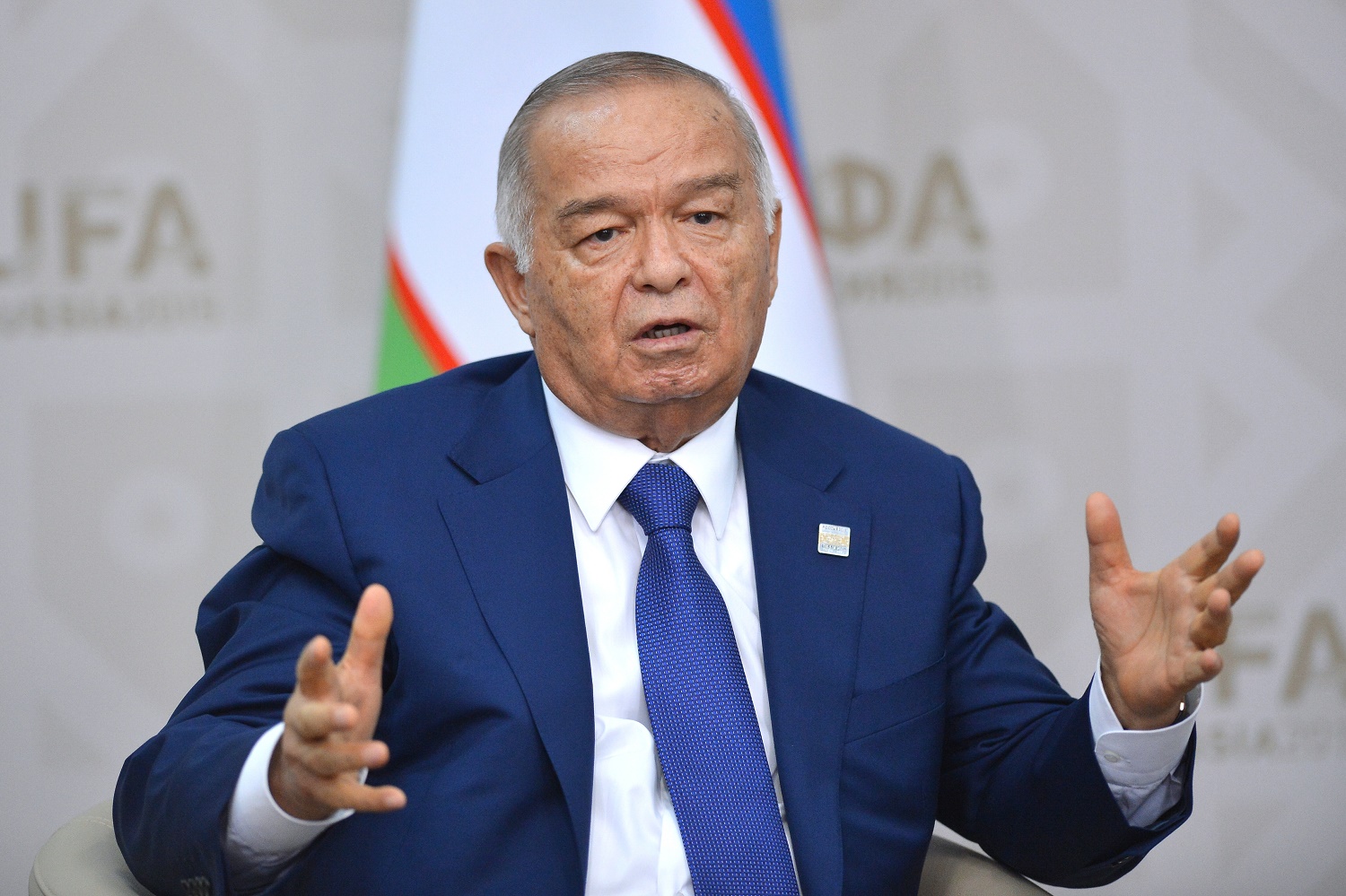
Former Uzbek President Islam Karimov
His views are not a surprise – in 2013, diplomatic cables leaked by WikiLeaks showed that Karimov believes “Western style” democracy is linked to homosexuality.
In conversation with the US ambassador, Mr Karimov clarified that “Western-style” democracy was not appropriate for Uzbekistan, claiming the country’s 85% Muslim population would not accept it.
Instead, he said the government would have to implement democracy “specific to its culture”.
Mr Karimov then claimed that homosexuality is “disgusting” to Uzbeks and that therefore Western democracy would violate Uzbekistan’s “moral purity… because it allows for or fosters the practice of homosexuality”.
A gay journalist who helped to uncover the horrific treatment of gay men in Chechnya had to flee Uzbekistan and faced deportation back to the country after uncovering the purge.
30-year-old Ali Feruz is a journalist for Novaya Gazeta and originates from Uzbekistan.
Feruz frequently writes about LGBT rights, hate crimes and disability rights.
He helped to uncover the injustices against gay men living in Chechnya.
Related: What is happening with gay people in Chechnya?
Feruz fled his home country after he was persecuted for being gay.
When he still lived there, he was attacked by authorities.
He then fled to Kyrgyzstan and Kazakhstan and six years ago he migrated to Russia.

